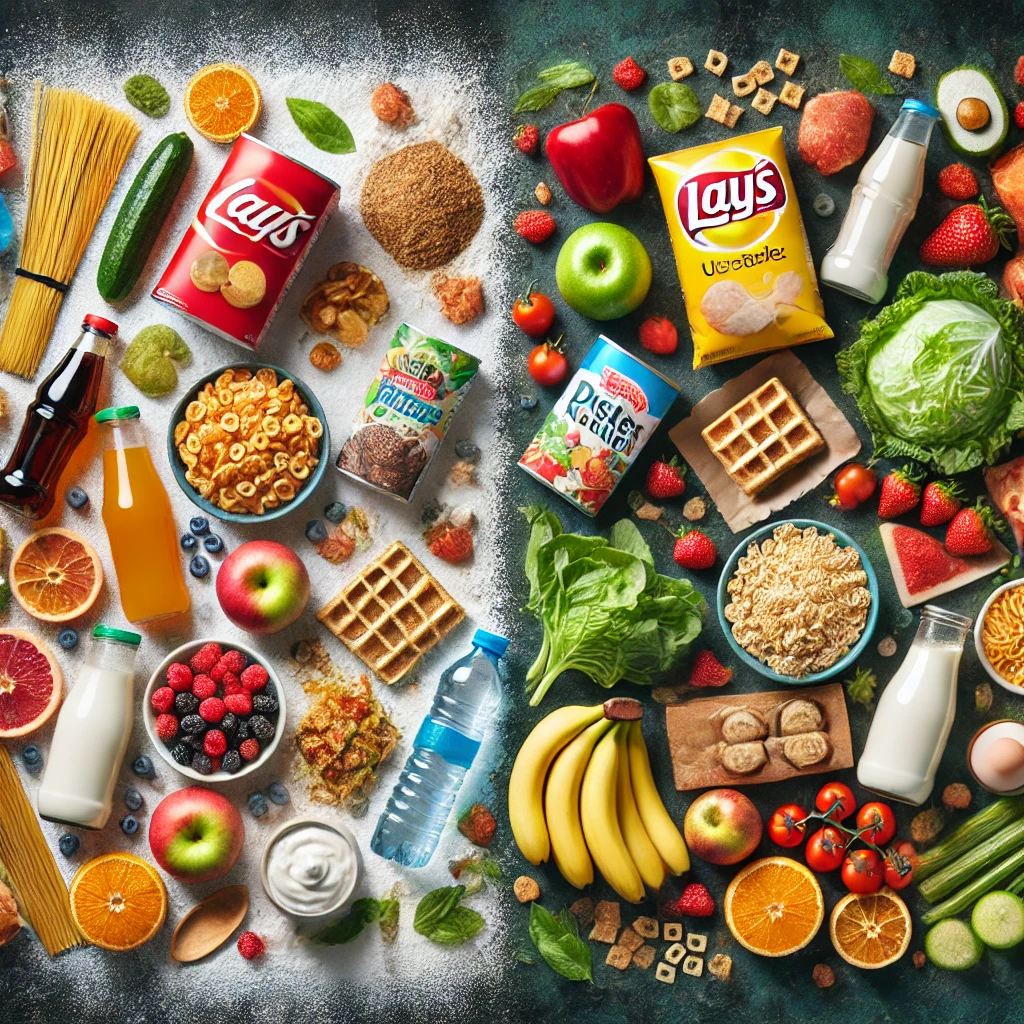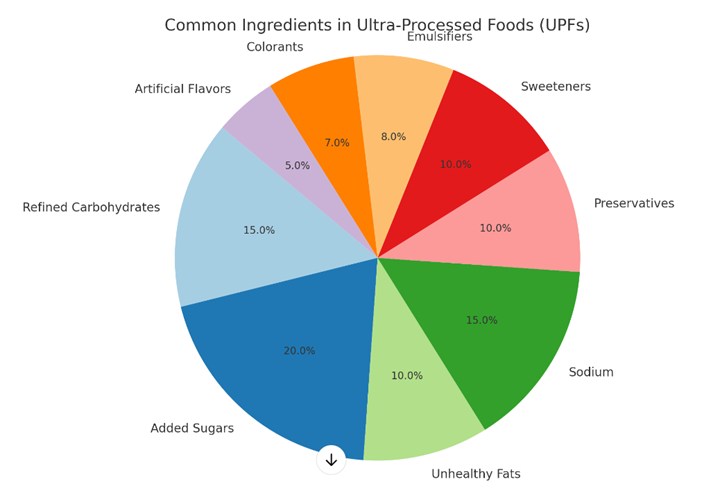Introduction: In an era where convenience often trumps nutritional integrity, ultra-processed foods (UPFs) have infiltrated our daily lives, masquerading as modern dietary staples. Despite their appealing packaging and addictive taste, these food products pose significant health risks, many of which remain obscured by complex food science jargon and aggressive marketing strategies. This article dissects the nature of UPFs, their detrimental health impacts, and the underlying reasons why they have become a dominant force in the global food industry.

What Are Ultra-Processed Foods? Ultra-processed foods are industrial formulations typically containing five or more ingredients, many of which are substances not commonly used in home cooking, such as preservatives, sweeteners, emulsifiers, colorants, and artificial flavors. These foods are designed to be hyper-palatable and convenient, often requiring little to no preparation before consumption. Examples of UPFs include sugary cereals, soft drinks, instant noodles, reconstituted meat products (like chicken nuggets), and ready-to-eat meals.

The Science Behind Ultra-Processing: At the heart of UPF production is the extensive use of industrial techniques such as extrusion, hydrogenation, hydrolysis, and the inclusion of modified starches and protein isolates. These processes alter the natural structure of food components, stripping them of their intrinsic nutritional value while enhancing their shelf life, texture, and flavor. For instance, extrusion—commonly used in the production of snack foods—can destroy vital nutrients like dietary fiber and vitamins, replacing them with energy-dense, nutrient-poor fillers.
The Nutritional Profile: UPFs are typically characterized by high levels of refined carbohydrates, added sugars, unhealthy fats (especially trans fats), and sodium, coupled with a significant deficiency in fiber, vitamins, and minerals. The consumption of these nutrient-depleted foods disrupts the balance of essential nutrients in the diet, leading to overconsumption of empty calories and underconsumption of health-promoting nutrients. This dietary imbalance is a key driver of non-communicable diseases (NCDs) such as obesity, type 2 diabetes, hypertension, and cardiovascular diseases.

Health Risks Associated with UPFs:
Obesity: UPFs are energy-dense and hyper-palatable, leading to excessive caloric intake and weight gain. The low fiber content and high glycemic index of these foods can also contribute to insulin resistance, a precursor to obesity.
Diabetes: The frequent consumption of UPFs, particularly those high in refined sugars, can cause chronic spikes in blood glucose levels, increasing the risk of developing insulin resistance and type 2 diabetes.
Cardiovascular Diseases: The high content of trans fats, refined carbohydrates, and sodium in UPFs elevates the risk of hypertension, atherosclerosis, and coronary artery disease.
Mental Health Issues: Emerging research suggests a link between UPF consumption and mental health disorders, including depression and anxiety. The neurochemical effects of certain food additives and the gut-brain axis disruption are potential mechanisms
Why Have Ultra-Processed Foods Become So Prevalent? The proliferation of UPFs is driven by several factors, including urbanization, changes in lifestyle, aggressive marketing, and the globalization of food systems. Urbanization has led to the breakdown of traditional food systems and the rise of fast food culture, where convenience often takes precedence over nutritional quality. Moreover, the food industry’s marketing strategies, which include appealing packaging, celebrity endorsements, and targeted advertising (especially towards children), have normalized the consumption of UPFs.
The Role of Food Additives: Food additives are integral to the ultra-processing of foods, serving various functions such as preservatives (to extend shelf life), emulsifiers (to stabilize mixtures), and flavor enhancers (to improve taste). While these additives are approved for use by food safety authorities, their cumulative effects, especially when consumed in large quantities through UPFs, raise concerns about their long-term impact on health. For instance, some emulsifiers have been linked to inflammation and gut microbiota dysbiosis, which can contribute to metabolic diseases.
Conclusion: The convenience and sensory appeal of ultra-processed foods come at a significant cost to public health. As the consumption of UPFs continues to rise globally, understanding their health risks is crucial for making informed dietary choices. Reducing UPF intake and opting for minimally processed, whole foods can help mitigate the risk of diet-related diseases and improve overall health.
Article contributed by Aniruddha Dey
